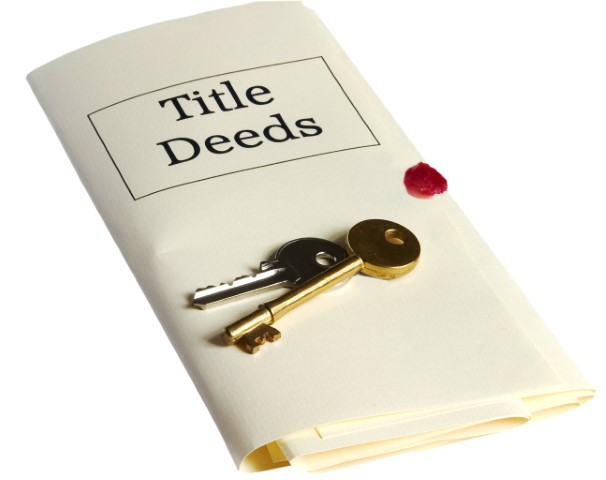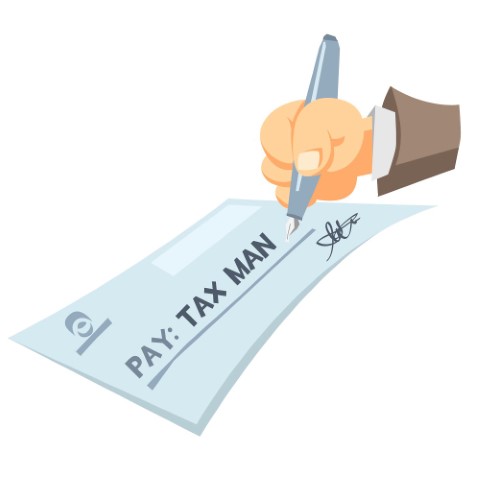April 15th 2020
 If you’ve ever taken one of my Money Machine seminars you’ll know that I am a strong advocate of holding onto your investment properties for life. Never sell. Of course there are situations such as a move to another geographic location or perhaps deteriorating health where selling your investment portfolio or a part thereof might become necessary. Hopefully neither of those situations arise. But there is another situation where a sale becomes a reality and that is at the time of your passing. We generally don’t like to talk about our demise, but not only is it inevitable, it is an event that has definite tax implications. It needs to be considered and planned for.
If you’ve ever taken one of my Money Machine seminars you’ll know that I am a strong advocate of holding onto your investment properties for life. Never sell. Of course there are situations such as a move to another geographic location or perhaps deteriorating health where selling your investment portfolio or a part thereof might become necessary. Hopefully neither of those situations arise. But there is another situation where a sale becomes a reality and that is at the time of your passing. We generally don’t like to talk about our demise, but not only is it inevitable, it is an event that has definite tax implications. It needs to be considered and planned for.
Whenever a person passes away, Canada Revenue Agency takes the position that for tax purposes it is exactly the same as if the person’s property were sold as of that date. They call it a ‘deemed disposition’. And any taxes that would arise had the person lived and chosen to sell would be applicable to his estate upon his death. The exception being the properties transferring to a surviving spouse.
 Taxes on rental income can be problematic. This is especially true during the years when mortgages are in place. With every payment made to the bank, a portion goes against principal. And as the amortization period shortens, the amount of payment against principal increases. But those dollars are taxable. For this reason a lot of people elect to depreciate their properties for tax purposes. Basically you start with the acquisitions cost of the property. Subtract off the value of the land (generally 25%) and the resulting number is the value you can depreciate at a rate of 4% per annum. Over time that number changes as capital improvements are added and depreciation is subtracted.
Taxes on rental income can be problematic. This is especially true during the years when mortgages are in place. With every payment made to the bank, a portion goes against principal. And as the amortization period shortens, the amount of payment against principal increases. But those dollars are taxable. For this reason a lot of people elect to depreciate their properties for tax purposes. Basically you start with the acquisitions cost of the property. Subtract off the value of the land (generally 25%) and the resulting number is the value you can depreciate at a rate of 4% per annum. Over time that number changes as capital improvements are added and depreciation is subtracted.
But keep in mind that this depreciation is a tax strategy, not a real-life fact. In actual fact, over time most properties do not drop in value (depreciate) they appreciate. Upon sale or deemed disposition, all amounts subtracted due to depreciation will have to be shown as recovered and taxes will be payable on that full amount. And that recapture is treated as income, not capital gains.
In addition to recapture, the property has in all likelihood gone up in value, and that increase is considered a capital gain. It is taxable at half the rate the taxpayer is liable for, or for ease of calculation, half the capital gain is added as income. Bear in mind however, this tax is not payable on a principal residence.
 But, in the case of an investor passing away, it is necessary to establish fair market value of the real property at the time of death, calculate the tax owing, both recapture and capital gain, and that money must be paid by the estate either within 6 months of death or at the end of April of the following year, whichever is later. It is handled at the time of filing of the income tax of the deceased. So there is some time, but regardless in the case where the properties are being left to someone, perhaps to a child or children of the deceased, the beneficiaries will have to prepare for what is often a significant amount of tax.
But, in the case of an investor passing away, it is necessary to establish fair market value of the real property at the time of death, calculate the tax owing, both recapture and capital gain, and that money must be paid by the estate either within 6 months of death or at the end of April of the following year, whichever is later. It is handled at the time of filing of the income tax of the deceased. So there is some time, but regardless in the case where the properties are being left to someone, perhaps to a child or children of the deceased, the beneficiaries will have to prepare for what is often a significant amount of tax.
It may be inevitable to re-finance the properties to pay the tax, or if that is not possible, sell some properties to pay the tax and retain the others free and clear.
In either case, careful planning and accurate record keeping is important on the part of the investor. You want to leave a legacy, not a liability, and one way or another, the government is going to get paid.